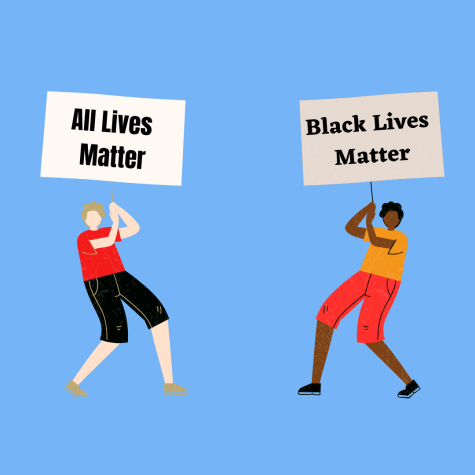The end of January marks the end of one of my favorite annual trends: Veganuary. Veganuary is a month where people attempt to take on a vegan lifestyle for the entire span of January, hence the name. The trend began in 2014 and has only grown in popularity since then. This year celebrities like Billie Eilish and Joaquin Phoenix even shared their support for the challenge.
As a longtime vegan, I’m a huge fan of this trend. Any effort that people put into sustainable diets and lifestyles I find awesome. However, some of my fellow vegans don’t share my level of support. As Julie Olech explains in “Do Vegans Hate Veganuary? Some, Yes — But You Don’t Have To,” “The main reason for criticism (of Veganuary) is the view that veganism shouldn’t have a try-before-you-buy label. Veganuary presents you with an opportunity to a 31-day pledge, with the hope you’ll stick around after. But if you don’t, you can go back to having a nice steak as soon as February hits without losing face or being embarrassed.”
In Olech’s article, she shows how vegans in opposition to Veganuary feel that people use the trend to pass themselves off as sustainable without actually putting in the effort or commitment of being a “true” vegan. She goes on to explain that some vegans believe Veganuary downplays the tragedy of the animal agriculture industry, is more of a marketing ploy, and just simply isn’t a sustainable option.
While I understand, being discouraged by people judging the vegan movement, in my opinion, the vegans who reject Veganuary represent the exact issue that holds veganism back.
If you Google “what is the main problem with the vegan movement,” you’ll generally get one common answer; something along the lines of “it’s elitist,” “it’s privileged,” or “it’s judgey.”
All these answers boil down to the fact that vegans are just not using good persuasive rhetorical strategies.
I think it’s safe to say that rhetorical strategies – I’m sure we’re all familiar with the iconic trio of ethos, pathos, and logos – are something that are very heavily taught in most secondary English courses across the nation. High school students are taught that if they want to persuade anyone, they must understand and balance these three rhetorical devices. But somehow, this basic strategy seems to fall by the wayside with people trying to promote an innovative cause.
Amy Buxton, a writer for The Vegan Review and author of “Veganism’s biggest problem (and how to solve it),” said, “Veganism’s biggest problem is vegans… Even as a joke, guilt-tripping non-vegan friends and family members just isn’t well received.” Buxton’s article highlights several other ways vegans are not using proper rhetorical strategies by acting smug, being inflexible, and not practicing what we preach.
No matter how ethical, sustainable, or healthy a vegan lifestyle may be, people will not be convinced to follow it when they’re being berated or belittled by vegans in the movement.
The same theory also applies to every facet of activism or social change.
At its very core, rhetoric aims to persuade people. Similarly, activism and social change rely on the support of the masses to make a palpable impact. To compile a following of passionate changemakers, activists must be able to persuade and thus have to understand the importance of rhetoric.

However, this is a strategy that is, apparently, becoming increasingly difficult. Social movements are becoming more controversial than innovative, and activists seem more focused on grasping the moral high ground than advancing their causes.
Let’s look at the Black Lives Matter (BLM) movement, for example. The BLM movement is dedicated to fighting racism and anti-Black violence. This movement has been so revolutionary in times of police brutality and just general systemic racism. However, the BLM cause has gained a counter-movement: the All Lives Matter cause.
The All Lives Matter movement started as a response to the BLM movement. People felt that BLM was not inclusive, and thus originally created All Lives Matter to be more intersectional. Now, All Lives Matter is widely known as an oppositional movement towards BLM.
But in the beginning, when the intentions were still pure, the All Lives Matter movement only sought to repair the rhetoric being used by the BLM movement. People thought that it would be more inclusive and progressive to highlight the fact that everyone mattered, despite race, a stance that some people felt BLM neglected. Overall, the All Lives Matter stance has regressed into hate but in the beginning, it was only meant to create a more persuasive rhetorical message.
People are straying so far from the true meaning of their movements because they seemingly value “being the better person” more than contributing something positive to a movement. This ideology makes people forget the value of rhetoric and the importance of teamwork in social change.
Before we can focus on being the bigger people, we have to serve our movements. The best way we can advance social change is by gaining the following of the masses.
Nicolas Agostini, author of “A Suicide Foretold: How Social Justice Rhetoric is Turning People off Human Rights,” said, “…winning human rights battles depends on bringing ordinary people on board the human rights cause– and it starts with the language we use.” His article elaborates on how language is the basis of any movement and the driving factor of persuasion.

Buzzwords such as “privilege” or “problematic,” conflicting stances, and elitist views are just some ways rhetoric fails social movements and causes a loss of following. It’s common knowledge that the clearer your message, the easier it will be to persuade an audience. However, despite this seemingly elementary rule, people always get lost in their arguments.
Take environmentalism, for example. Environmentalism is a cause I will support until my dying days, but it is also a cause with a pretty vague and buzzword-heavy goal. Our own federal government is guilty of hazy and adage adjacent mission statements. President Joe Biden gave a speech on Earth day in 2022. He focused his speech on the following phrase: “We’ve put environmental justice at the center of what we do.”
Now let’s break that down. What does “environmental justice” even mean?
It’s a phrase I myself have frequented without actually being able to picture what environmental justice looks like. I default to that phrase mostly because of the word “justice.” Justice is a major buzzword across the activism scene as a whole. It stands for really any desirable outcome, right? Justice has to be good, but it doesn’t clarify what outcome is desired or what goal is being worked towards. When we say we want environmental justice, what do we really want? Do we want to reduce carbon emissions by three percent in ten years? Maybe, but we’ll never truly know that because of the vagueness of the mission statement.
Having vague messages takes us back to that theory of clear message=more followers. Not being able to interpret a mission statement causes a gain in following from people who may not understand the movement or believe in its goals. Similarly, people stray away from causes that have conflicting stances.
Let’s take a look at feminism for this example. Feminism is another cause I’d give my life to, yet it is another movement plagued by conflicting stances. Take wage gaps, for example. Feminism seeks to bridge the divide between male salaries and female salaries of the same position. However, ask a large group of feminists how they want to approach this, and you could get differing answers.
You may hear, “Women deserve to earn more than men,” or you could get, “Women should have equal pay to men.” Both arguments seek to tackle the same issue of income inequality, yet they take entirely different approaches. This inconsistency in the movement is why many people view feminism as controversial and even sometimes elitist.
I will be an activist until my final breath, but I will never be idle. There are problems with activism, primarily in language and rhetoric. Ignoring these issues is only doing a disservice to justice.
To truly promote a better tomorrow, we must reflect on the things that need changing and work to improve them. We need to get back to the basics and remember the importance of persuading people, how to humble ourselves so as not to come across as elitist, and how to use language that inspires people with a clear and concise message rather than confusing the masses.
So with this in mind, I’ve decided to start my own social movement. Our mission statement will be “Give me rhetoric, or give me death.”















